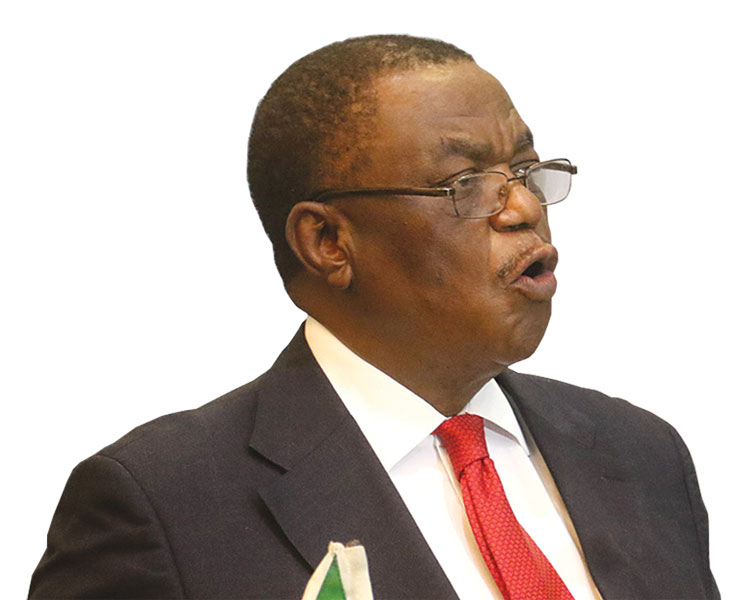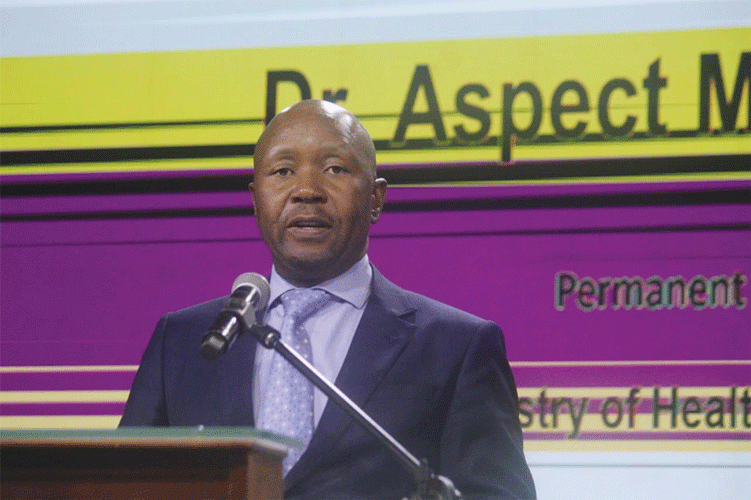
BY MOSES MATENGA/HARRIET CHIKANDIWA
JUNIOR doctors will now be conscripted into the army soon after graduating in a move observers said was aimed at militarising the health sector and stopping the health practitioners from going on strike as well as leaving the country for greener pastures.
According to a new order released by government on September 28, junior doctors must now be recruited as military doctors for them to be able to work in government hospitals.
Vice-President Constantino Chiwenga, who is also Health minister, is a former soldier, while ministry’s permanent secretary, Jasper Chimedza, is Air Force of Zimbabwe Air Commodore.
The development comes at a time over 230 medical students, who have just finished their five-year training, programme were about to be posted to public hospitals as junior resident medical officers (JRMOs) where they were supposed to serve for three years in order to be able to be certified to run their own private practices.
In a letter dated September 28 addressed to Chimedza, the Health Service Board said government through the Finance ministry had approved the hiring of 407 JRMOs, but only on condition that some of them are appointed under the Defence Forces Service Commission.
“The Health Service Board was in August 2020 granted concurrence by the Ministry of Finance to appoint 407 junior resident medical officers on the conditions that some of them are appointed by the Defence Forces Services Commission,” part of the letter read.
“It is noted that 230 junior resident medical officers (JRMO) are in their final examination and will be ready to be absorbed in the service upon successful graduation.”
- Chamisa under fire over US$120K donation
- Mavhunga puts DeMbare into Chibuku quarterfinals
- Pension funds bet on Cabora Bassa oilfields
- Councils defy govt fire tender directive
Keep Reading
The letter added: “In view of the Treasury concurrence, the Health Service Board is recommending that the 230 JRMO be employed under the Zimbabwe Defence Forces who indicated that they are willing and ready to do so.”
The country has been experiencing recurrent strikes by doctors demanding better salaries and working conditions. Last year, doctors were on strike for over four months and only ended the job action after the intervention of corporates such as Econet.
The doctors went on strike again last month, joining nurses who were on strike for over three months demanding COVID-19 personal protective equipment (PPE) and US dollar salaries.
But Chiwenga, after taking over as Health minister, forced the closure of three programmes at the University of Zimbabwe’s medical school where the graduate trainee doctors would go for specialist training.
Chiwenga also tightened rules for doctors seeking to work abroad.
It will now take doctors three signatures from the State, likely hostile signatories, to secure the “Certificate of Good Standing” which used to be issued by the Medical and Dental Practitioners Council of Zimbabwe.
Zimbabwe Association of Doctors for Human Rights secretary Norman Matara said the new measures constituted an attack on the health profession.
“We just feel it is an issue of oppression and continuous attack of the health sector in Zimbabwe. We feel that qualified doctors should not be coerced into joining the ZDF, but they should do it voluntarily,” he said.
“We think that this is a move to clip the wings of doctors and make sure that they do not exercise their constitutionally-guaranteed rights to go on industrial action by making them part of the ZDF.”
Former Health minister Henry Madzorera said the move was “madness” and it would not work.
“That’s madness. You can’t militarise healthcare. It will not work,” Madzorera said. “They are trying to solve problems in the health delivery system through a command and control mode and it doesn’t work.
He added: “What they must just do is pay health workers well, give them what they are asking for, treat them as humans and they will do their work as they have always done.
“When we were young we did our work. Now they have stolen everything in the health delivery system and they want these children to suffer. They are entering in command mode; it doesn’t work in the medical field.”
Madzorera warned that the health sector would likely see the exodus of doctors to Europe, where their services are desperately needed.
Community Working Group on Health (CWGH) executive director Itai Rusike said the appointment of Chiwenga and Chimedza to head the ministry was bound to result in the militarisation of the health sector.
“The decision by the Health Service Board to send doctors for military training is a top-down approach that should be discouraged as it risks creating animosity between the majority civilian health workers and their military counterparts,” he said.
“There are other means of bringing discipline, loyalty and patriotism among health workers through self-regulation from their various professional bodies rather than sending them for military training.”
Lawyer Douglas Coltart said: “Professionals in Zimbabwe are under attack. All junior doctors now fall under military, teachers and nurses are threatened with mass dismissals for questioning slave wages, lawyers arrested and prosecuted for doing our jobs, journalists assaulted for covering a Press conference.”











